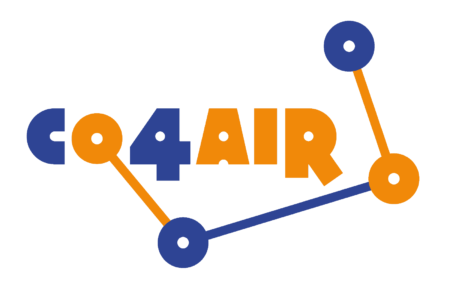Why and how to put together computers, cognition and communication in control?
The digital revolution, driven by artificial intelligence and combined with cheaper hardware components, leads to a generalisation of computer-controlled systems in many domains (e.g. transport, robotics, industry, health, building, energy, etc.). Due to the ongoing development of increasingly affordable and efficient IT tools and hardware in the industrial context, the need for skills and competencies in the Co4 domains will become more and more essential.
The field of computers, cognition and communication in control (Co4) draws upon computer science, mathematics, telematics, robotics, computer architecture, embedded systems, real-time systems, and many others.
Co4 topics generally overlap between several academic domains (e.g. automation and control, computer science, electrical engineering, mechanical engineering). Accordingly, this subject is never considered as a whole and in its own right, hence the demand for such qualifications exists and will continue to grow.
The Skills Matrix developed under the Co4AIR project is intended to be the reference framework specifically dedicated to this field of expertise, covering all the skills and competencies required in this area.
The academic world approaches skills more from a cognitive point of view, whereas the industrial world is more interested in the technical abilities of their recruit and staff. In response to this problem, the Co4AIR project provides a common reference framework to ensure consistency and help develop new curricula as well as define job descriptions.
Given the lack of actual case studies in current curricula, the Co4AIR consortium decided to design and develop a pedagogical multimedia product and a student contest.
The Serious Game is a pedagogical multimedia tool with high educational potential for implementing learning-by-mistake methods. Students from various study fields can apply the concepts learnt during their studies, both on aspects of real-time programming and system control, in a realistic application.
The Co4-Marathon challenged student teams to design, build and test efficient solutions for current, real-life control problems. The simulated drone racing provided them with a challenge-based learning opportunity to gain real experience in teamwork and exploit a wide range of skills required in this complex area – precisely those skills that were mapped in the Co4AIR skills matrix.
The concept of the Co4-Marathon as a pedagogic tool – as well as the other outputs of the project – is open-source and adaptable.
The Co4AIR project is carried out by a consortium of 8 European institutions/organisations, coordinated by the Université Polytechnique Hauts-de-France. The project is co-funded by the Erasmus+ Programme of the European Union.
Learn more about the project and its output here.

